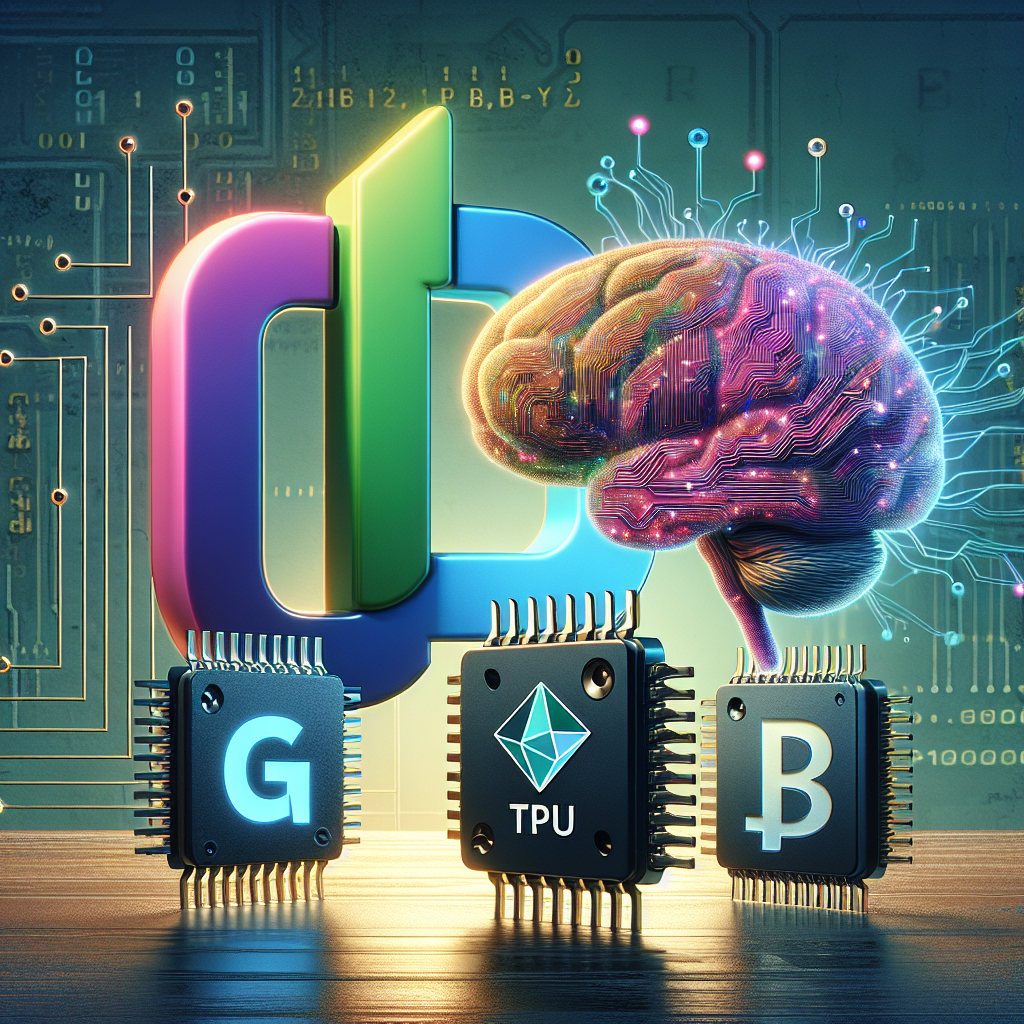How Google’s Anthropic Deal Signals a New Era for TPU Adoption
Google (NASDAQ: GOOG, GOOGL) has taken a significant step forward in expanding the reach of its AI compute infrastructure by entering into a strategic agreement with artificial intelligence firm Anthropic. Under the deal, Google will provide up to 1 million of its proprietary Ironwood Tensor Processing Units (TPUs), positioning its custom silicon at the forefront of AI innovation. According to insights from HSBC, this move not only fortifies Google’s AI infrastructure but also opens the door to a much broader market for its TPU offerings.
What the Deal Means for Google and Anthropic
The agreement underscores the escalating demand for high-performance computing power amid the generative AI boom. By supplying up to a million TPUs, Google is enabling Anthropic—a rising star in the AI arena known for its AI assistant Claude—to train and run some of the most computationally intensive models on the market.
Key benefits for Google from the deal include:
- Increased utilization of proprietary hardware: The Ironwood TPUs are built in-house, giving Google an edge in performance and cost efficiency compared to third-party chips like those from NVIDIA or AMD.
- Strengthening cloud market positioning: With more companies opting for AI-centric cloud solutions, custom silicon like TPUs can become a differentiator for Google Cloud.
- Establishing long-term partnerships: Deep collaboration with companies like Anthropic enhances the stickiness of Google’s cloud ecosystem.
Understanding the Ironwood TPUs
The Ironwood TPUs represent Google’s fifth-generation Tensor Processing Units, designed to optimize large-scale AI workloads. These chips have been engineered specifically for the kinds of applications that underpin models like those developed by Anthropic and other engaging in frontier AI development.
Advantages of Ironwood TPUs include:
- High throughput and low latency: Perfect for training massive language models.
- Energy efficiency: Custom silicon allows for better performance-per-watt ratios than general-purpose GPUs.
- Scalability: The infrastructure supports massive scaling, which is critical for generative AI systems.
The Strategic Value of the Anthropic Relationship
Anthropic has emerged as one of the key players in the AI field, alongside OpenAI, Cohere, and others. Its Claude chatbot has garnered industry attention thanks to a focus on ethical AI behavior and transparent model alignment. By partnering with Anthropic, Google aligns itself with a company that shares its vision for responsible AI and technological leadership.
HSBC analysts view this agreement as a sign that Google’s custom TPUs may soon become a go-to choice for more AI firms requiring scalable, high-performance compute. The deal’s scale suggests that Google is capable of meeting the infrastructure needs of the largest AI workloads in the industry.
A Sign of Shifting Industry Dynamics
The move also reflects broader changes in the AI chip industry. While NVIDIA still dominates in AI computing with its powerful GPUs, companies like Google, Amazon (with Trainium and Inferentia), and Meta are developing their own AI chips to reduce reliance on traditional semiconductor vendors.
The implications are wide-reaching:
- More control over AI development costs.
- Faster innovation through customized hardware.
- Greater differentiation among cloud providers.
Potential for More TPU Clients
As HSBC points out, the Anthropic deal could be the catalyst for future agreements with other AI companies seeking alternatives to NVIDIA-based computing environments. With growing concerns around GPU shortages and costs, Google’s in-house TPU infrastructure offers a compelling solution. If performance benchmarks continue to rival or surpass existing GPU offerings, more clients may opt for Google’s TPU-based infrastructure.
Final Thoughts: A Win-Win for the AI Ecosystem
Google’s massive TPU deal with Anthropic raises the bar for custom AI infrastructure and positions the company more favorably in the race to power the next generation of intelligent applications. As the generative AI wave surges on, the demand for powerful and efficient computing platforms will only accelerate.
By leveraging its Ironwood TPUs, Google not only meets that demand but also strengthens its foothold in the AI ecosystem—potentially creating a new customer base among startups and large enterprises that want best-in-class AI infrastructure without the NVIDIA dependency.
With this strategic partnership, Google is not just powering AI. It’s helping shape the future of how AI is trained, deployed, and scaled across industries.



Leave a Reply